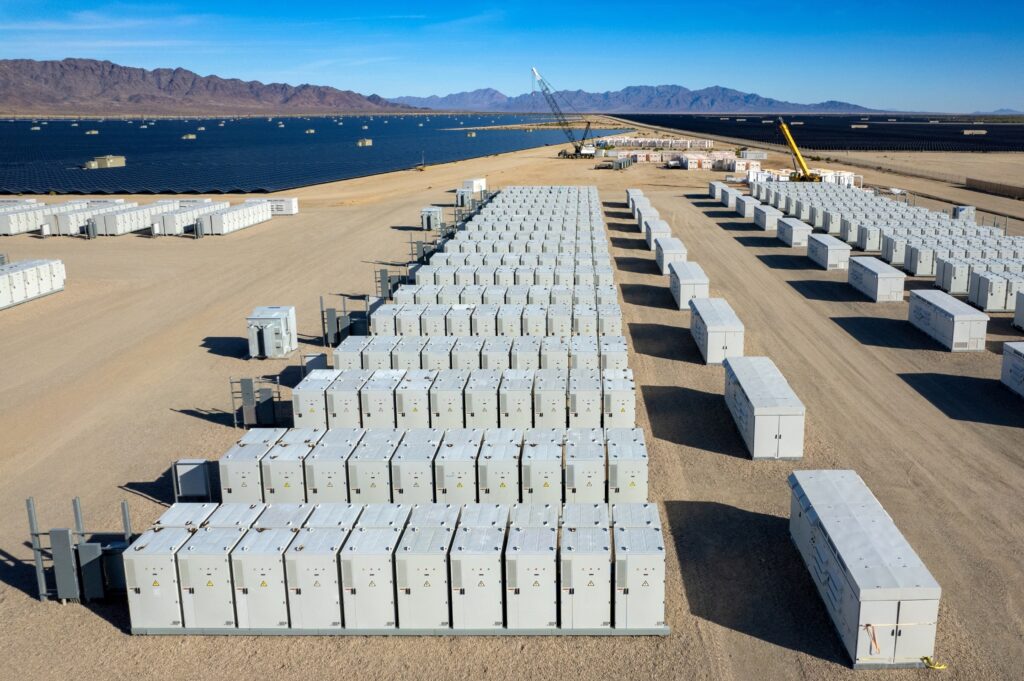Cleantech – A Forest of Funds
August 5, 2019 – (LinkedIn) – SJF Ventures has been investing in cleantech companies for 20 years. We have seen many funds come and go, most notably Silicon Valley funds that rushed in some years ago only to get burned. The incorrect media conclusion after that saga was ‘cleantech VC failed’. However, funds like SJF have continued all along supporting cleantech winners like our portfolio companies NEXTracker, TransLoc, Community Energy, Optoro, Novinium, TemperPack, Voltaiq, CleanScapes, Hyla, Living Earth, BioSurplus, groSolar and others.
Recently, new capital sources have arrived for cleantech ventures. While SJF typically invests $5MM+ in Series A or B rounds of $5–$15MM for growth stage companies, many companies don’t quite fit our criteria. For the many energy entrepreneurs we speak to each year, I wanted to list some other active cleantech investors. (This is not an exhaustive list, only funds or capital sources SJF knows and to whom we refer entrepreneurs when there is a good fit.)
Starting off, there are a host of incubators and start-up labs which have sprung up. These include Greentown Labs in Cambridge, MA (good for hardware tech), the Urban Future Labin NYC, the LA Cleantech Incubator (LACI), Powerhouse in Oakland, CA (great for solar, have a seed fund as well), the Elemental Excelerator in Honolulu and Palo Alto, Cyclotron Road at the Berkeley Lab, the Clean Energy Trust in Chicago, Joules Accelerator in Charlotte, NC, and Free Electron (supported by 10 global utilities). These are just a few leading incubators but there are many more, check out this list from New Energy Nexus, the global network of clean energy incubators. And of course, there are the diversified tech incubators, notably TechStars and Plug and Play which have incubated cleantech firms.
Next up, there are a number of early stage cleantech funds who are quite active these days. They include Congruent Ventures in SF, the Clean Energy Ventures in Boston, the Prime Coalition in Boston, the Energy Foundry in Chicago, Obvious Ventures in SF (both early and late stage), Greenhouse Capital in Sausalito, and Safer Made in NYC as well as independent sponsors like the SOIL Funds in NYC. SJF helped to co-found Impact Capital Managers and several ICM members invest at the seed or early stage including SustainVC in Philly and Durham, Better Ventures in Oakland, Wireframe Ventures in SF, City Light in NYC and Impact Engine in Chicago. Also, there is the E8 angel network out of Seattle and the national Social Venture Circle, (formed from the merger of Social Venture Network and Investors Circle) which have helped capitalize dozens of early stage green companies for decades. New investment networks have launched, such as the GlassWall Syndicate for animal and planet welfare.
Of course, early stage tech-intensive ventures should seek out non-dilutive grant or governmental support where aligned and efficient. These could include federal SBIR/STTR grants or in-kind support from NREL or federal labs. Some states have resources including NYSERDA, the NY Green Bank, CalCEF, Mass CEC, and WA CEF. The best database for state incentives and grants is managed by the NC Clean Energy Technology Center. Other states, like Pennsylvania with Ben Franklin Technology Partners, have early stage incubator and seed investment funds that have supporting a number of greentech companies.
For Series A and B growth rounds for cleantech firms, in addition to SJF Ventures there are a few funds that have been active for many years including DBL Partners in SF, Braemarin NYC, Prelude in SF, Ecosystem Integrity in SF, First Analysis in Chicago, G2VP (KPCB spin-out) in SF, ClearSky in Florida, XPV Water Partners in Toronto, The Westly Group in Menlo Park, Arborview in Chevy Chase, WAVE in Boston, Renewal in Vancouver, Cycle Capital in Montreal and Toronto, Activate Capital in SF and Wayne, and Fontinalis in Detroit and Boston (mobility focus.) Fortunately, us ‘old-timers’ have been joined by many new funds. These include new climate change and energy focused funds like Breakthrough Energy Ventures in Boston and SF, Princeville Climate in SF, Lime Rock New Energy in CT, Mission Driven Capital Partners in NYC, 1955 Capital in SF with a developing world focus, and industrial tech VCs like Anzu Partners in San Diego.
Then there are the newly active corporate VCs like BP Ventures, Shell Ventures, ATV,Aster, innogy Ventures and the Oil and Gas Climate Initiative (OGCI). Then there are the new utility LP driven funds, notably Energy Impact Partners in NY and SF, Energize in Chicago, Constellation Technology Ventures in Baltimore, National Grid Partners in Boston, and Evergy Ventures in Kansas City. Mobility also has had an acceleration of corporate VC activity, including from BMW i Ventures, Toyota AI Ventures, Samsung, GM Ventures, Jaguar, AutoTech, FMC and Maniv Mobility. Finally, for circular economy ventures, Closed Loop of NYC has funds across early and late stage as well as project finance.
Once firms are deploying sustainable assets, they can now turn to a growing group of cleantech project finance firms to transition towards a lower cost of capital than equity. These include Generate Capital in SF, Spring Lane Capital in Boston (former Black Coral team), Equilibrium Capital in Portland, Ultra Capital in Philly, New Island Capital in SF, and Windsail Capital in Boston. Family offices have been active across the spectrum of capital for cleantech companies. The CREO Syndicate (Cleantech, Renewable and Environmental Opportunities) is a great family office network for engagement.
As companies reach a late stage, there is now a set of much larger growth or buyout funds for that part of the life cycle. The oldest and most notable is Generation, which invests in large private rounds as well as public companies and publishes a fantastic sustainability trends report. They have been joined by other larger impact funds that invest in part in cleantech companies, including Bain Double Impact Fund, The Rise Fund, and KKR Impact.
When a greentech company is working on a large capital raise or M&A opportunity, they can work with one of the specialist investment banks like Greentech Capital or Marathon or with the diversified investment banks which have built robust cleantech practices such as Baird, Cannacord Genuity and Coady Diemar.
I have only listed capital sources with a particular focus on cleantech and sustainability above. But many cleantech companies have been financed by either regional investors or tech investors. Such investors may bring expertise in AI, IOT, SaaS, or tech being utilized to drive resource efficiency. To find a local angel group, take a look at the Angel Capital Association directory and of course AngelList. For broader VC lists, you can check out the membership of Impact Capital Managers, NVCA, or SBIA (SBICs). And I did not try to cite active cleantech funds outside the US, like Zouk Capital in London and many others, here is a good starting list of those.
One caution: We do see entrepreneurs who spent most of their time fundraising and not enough time focused on serving their customers. Some of SJF’s best cleantech investments have been with ventures that found scrappy ways to build significant commercial businesses with more than $1MM in revenues before raising a larger venture round. Many great companies are built without ever needing to raise venture capital.
There you have it! We need more capital, and policy change, to quickly scale the climate and employment solutions our world needs. But I am encouraged that there are many more “cleantech trees in the capital forest” than a few years ago… and we need to plant many more!
Please let me know if there are other active funds I should cite and I will continue to edit this article as a resource for cleantech entrepreneurs. (I have already added several new funds from reader suggestions, thank you!)

